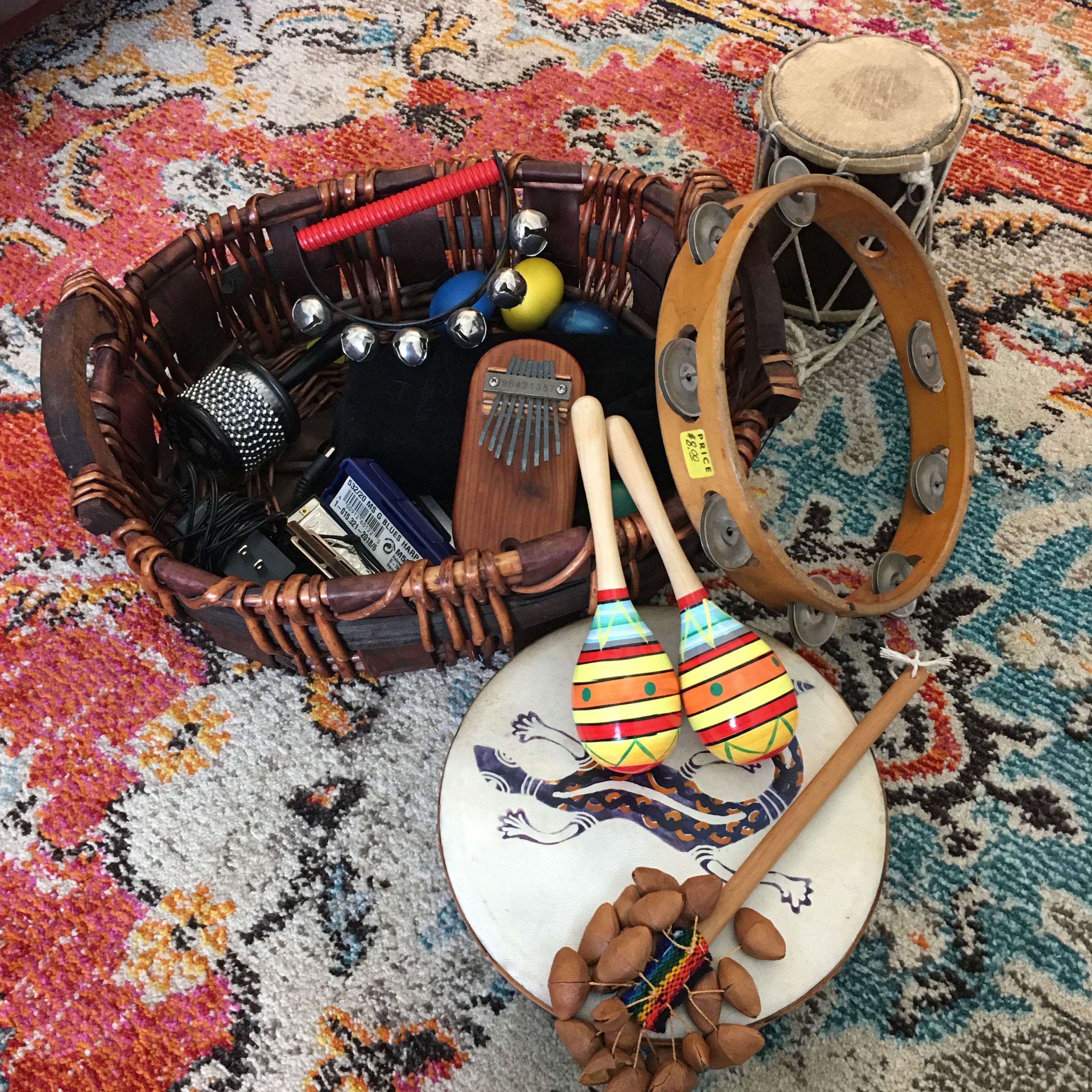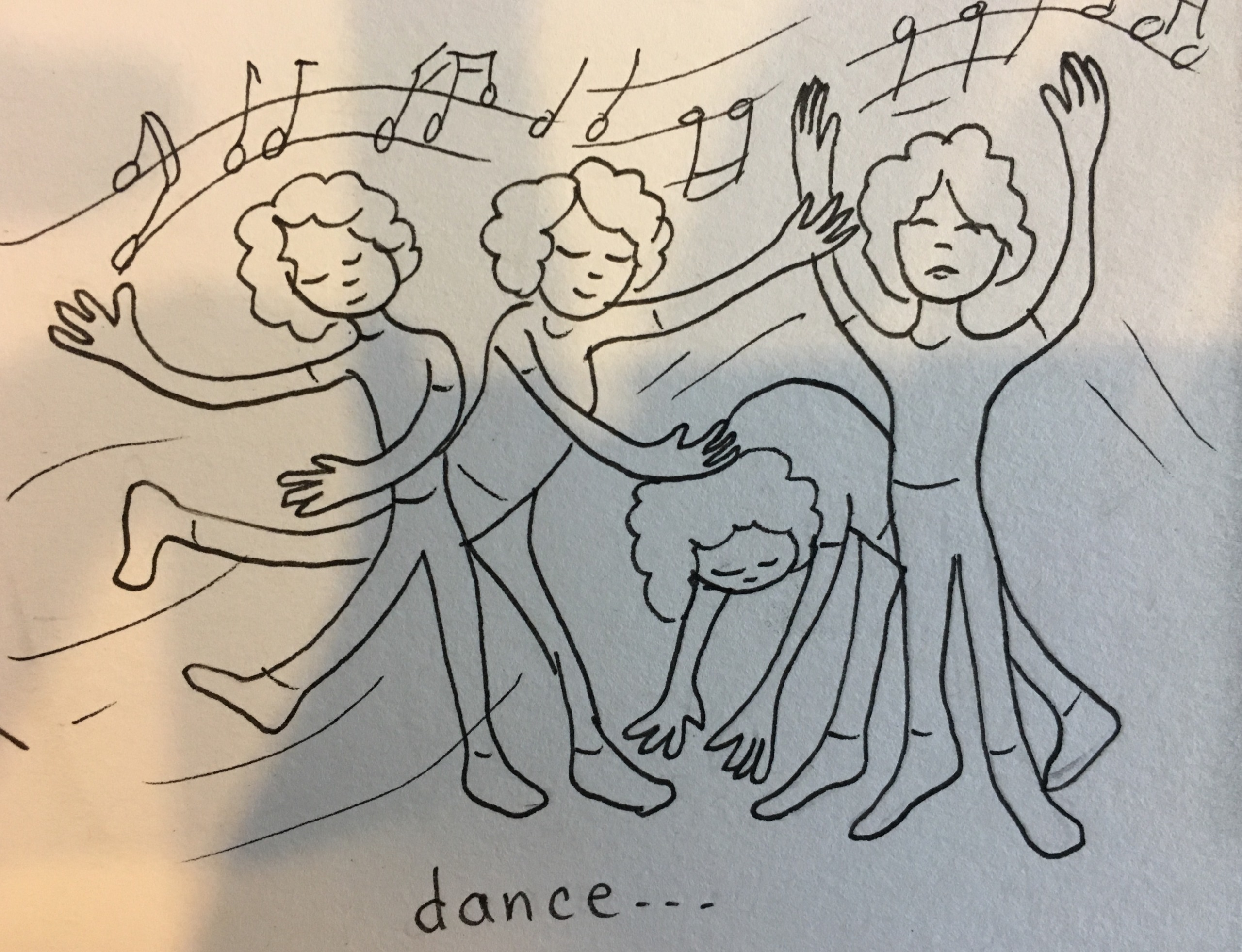
Music Therapy
Find a Music TherapistMusic is a powerful vehicle for connecting us to emotions, memories, creativity, hope and meaning.
Music therapy is the clinical and evidence-based use of music interventions to promote health and achieve therapeutic goals. Music therapy is focused on the process of using musical experiences and the emotional associations that develop through them as a force for change. Just like any other therapist, a music therapist is there to support, guide, and witness your path towards self-understanding, acceptance, and change.
Because the focus is on the process, you do not need to have musical skills to participate or benefit from music therapy. In psychotherapy, music is a powerful tool to communicate what words cannot. Music can also help release emotions allowing them greater clarity in verbal processing.
As a music therapy client you may expect to experience:
· Instrumental improvisation
· Singing and vocalizing
· Listening experiences
· Songwriting
· Mindfulness through music
· Verbal processing

Music therapist are licensed psychotherapists in New York State.
In New York State, Music Therapists are licensed as Mental Health Practitioners and practice psychotherapy. For more information about the practice of music therapy visit musictherapy.org
“In the warm, accepting environment, the petals open to reveal the flower’s inner essence. As our feelings are tapped, they become a resource for further self-understanding and creativity. We gently allow ourselves to awaken to new possibilities. With each opening we may deepen our experience. When we reach our inner core, we find our connection to all beings. We create to connect to our inner source and to reach out to the world and the universe.”
Natalie Rogers In "The Creative Connection: Expressive Arts as Healing" (1993)

Music Therapy FAQS
What is Vocal Psychotherapy?
Vocal psychotherapy is a therapeutic approach that integrates traditional psychotherapy with vocal techniques and expression. It focuses on the use of the voice as a tool for emotional expression, self-discovery, and healing. Here are some key aspects:
Integration of Voice and Therapy: Vocal psychotherapy combines elements of traditional psychotherapy with techniques involving the voice. This can include singing, vocalizing, chanting, and various forms of vocal expression
Emotional Release and Expression: The voice is seen as a powerful instrument for expressing and releasing emotions that may be difficult to articulate verbally. Through vocalization, individuals can explore and process deep-seated emotions, trauma, or psychological issues.
Non-verbal Communication: Vocal psychotherapy recognizes that communication goes beyond words. It utilizes the tonal quality, pitch, rhythm, and dynamics of the voice to convey underlying emotions and states of being.
Body-Mind Connection: The approach acknowledges the interconnectedness of body and mind. By engaging the voice, individuals can access and work through psychological issues that may be held in the body.
Therapeutic Goals: The goals of vocal psychotherapy often include increased self-awareness, emotional regulation, improved communication skills, and enhanced well-being through the integration of vocal expression into the therapeutic process.
Practical Applications: Techniques used in vocal psychotherapy can vary widely depending on the therapist’s training and the client’s needs. They may involve guided vocal exercises, improvisation, songwriting, or structured vocalizations designed to target specific therapeutic goals.
Overall, vocal psychotherapy offers a unique approach to therapy that leverages the expressive power of the voice to facilitate psychological healing and personal growth.
Do I have to be able to sing or play an instrument to do Music Therapy?
You do not need to know how to formally sing or play an instrument to benefit from music therapy. Music therapists are trained to meet clients at any skill level and provide accessible interventions at each individual’s pace and comfort level. All that is required is a willingness to try and step outside of what is familiar, in order to develop new skills, confidence, and self-awareness.
What can I expect in a Music Therapy session?
Every music therapy session is different and tailored to the needs of each client. You may only talk about music and the role it plays in your life, how it connects to memories or relationships. Or you may listen to music , do some vocal exercises or even percussion or make up a song. Your therapist will work with you to determine how music will best fit into your treatment, based on the issues you are working on and the goals you have set.
Is Music Therapy an effective intervention for people with autism?
Music therapy is an effective intervention for people with ASD, because it can integrate brain function to enhance communication, emotional expression, and self-regulation. It also makes therapy accessible to those with limited verbal skills.
Is there research demonstrating the effectiveness of Music Therapy?
Yes, a lot of research has been done on the effectiveness of music therapy across the lifespan. For more details, visit: https://www.musictherapy.org/research/
Send a Message
Please take a moment to answer a few questions so we can better help you.
"*" indicates required fields